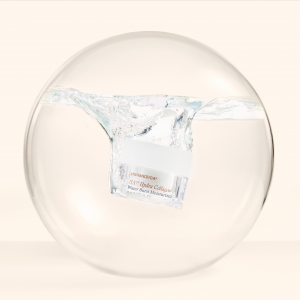
Water is essential for life. Our bodies are made up of about 60% water, and every cell, tissue, and organ in your body needs water to function correctly. From regulating body temperature to aiding in digestion, water plays a crucial role in maintaining overall health and well-being.
The Role of Water in the Body
Water is involved in almost every biological process in the body. It helps with cellular function, acting as a solvent for essential molecules, and aids in transporting nutrients and waste products. Additionally, water plays a vital role in regulating body temperature, especially through sweating.
Signs of Dehydration
Dehydration occurs when your body loses more fluid than you take in. Common signs of dehydration include thirst, dark urine, fatigue, and dizziness. It’s essential to recognize these signs and take steps to rehydrate to avoid further complications.
Benefits of Proper Hydration
Proper hydration offers a range of benefits, including improved physical performance, better cognitive function, and clearer skin. When you’re properly hydrated, your body can function at its best, allowing you to perform better in various aspects of life.
Factors Affecting Hydration Needs
Several factors can affect your hydration needs, including your activity level, environment, and health conditions. For example, hot weather and intense physical activity can increase your fluid needs, while certain health conditions may require you to adjust your fluid intake.

How Much Water Should You Drink?
While the “eight glasses a day” rule is a good starting point, your individual water needs can vary based on factors like age, gender, and activity level. It’s essential to listen to your body and drink when you’re thirsty, but also to be mindful of your fluid intake throughout the day.
Tips for Staying Hydrated
Staying hydrated doesn’t have to be complicated. Simple tips like carrying a water bottle with you, drinking water before meals, and eating water-rich foods can help you stay hydrated throughout the day.
Effects of Dehydration on Health
Chronic dehydration can have serious effects on your health, including kidney stones, urinary tract infections, and even kidney failure. It can also affect your digestive health, leading to constipation and other gastrointestinal issues.
Hydration and Exercise
Proper hydration is especially important during exercise. Drinking water before, during, and after exercise can help prevent dehydration and improve performance. Replacing lost fluids and electrolytes is crucial for recovery after a workout.
Hydration for Specific Groups
Certain groups, such as children, pregnant women, and older adults, may have specific hydration needs. It’s essential for these groups to pay close attention to their fluid intake to maintain optimal health.
Debunking Hydration Myths
There are several myths surrounding hydration, such as the idea that you only need to drink water when you’re thirsty or that coffee and tea dehydrate you. It’s essential to separate fact from fiction when it comes to hydration.
Importance of Electrolytes
Electrolytes, such as sodium, potassium, and magnesium, are essential for proper hydration. They help maintain the balance of fluids in your body and are crucial for muscle function and nerve signaling. Sources of electrolytes include fruits, vegetables, and sports drinks.
Water Quality and Safety
The quality of the water you drink is also important for your health. While tap water is generally safe to drink in most developed countries, some people prefer to use water filtration systems or drink bottled water. It’s essential to choose a safe and reliable source of water to avoid contaminants.
Conclusion
In conclusion, staying hydrated is crucial for maintaining overall health and well-being. By understanding the importance of water and following simple tips for staying hydrated, you can ensure that your body functions at its best.







